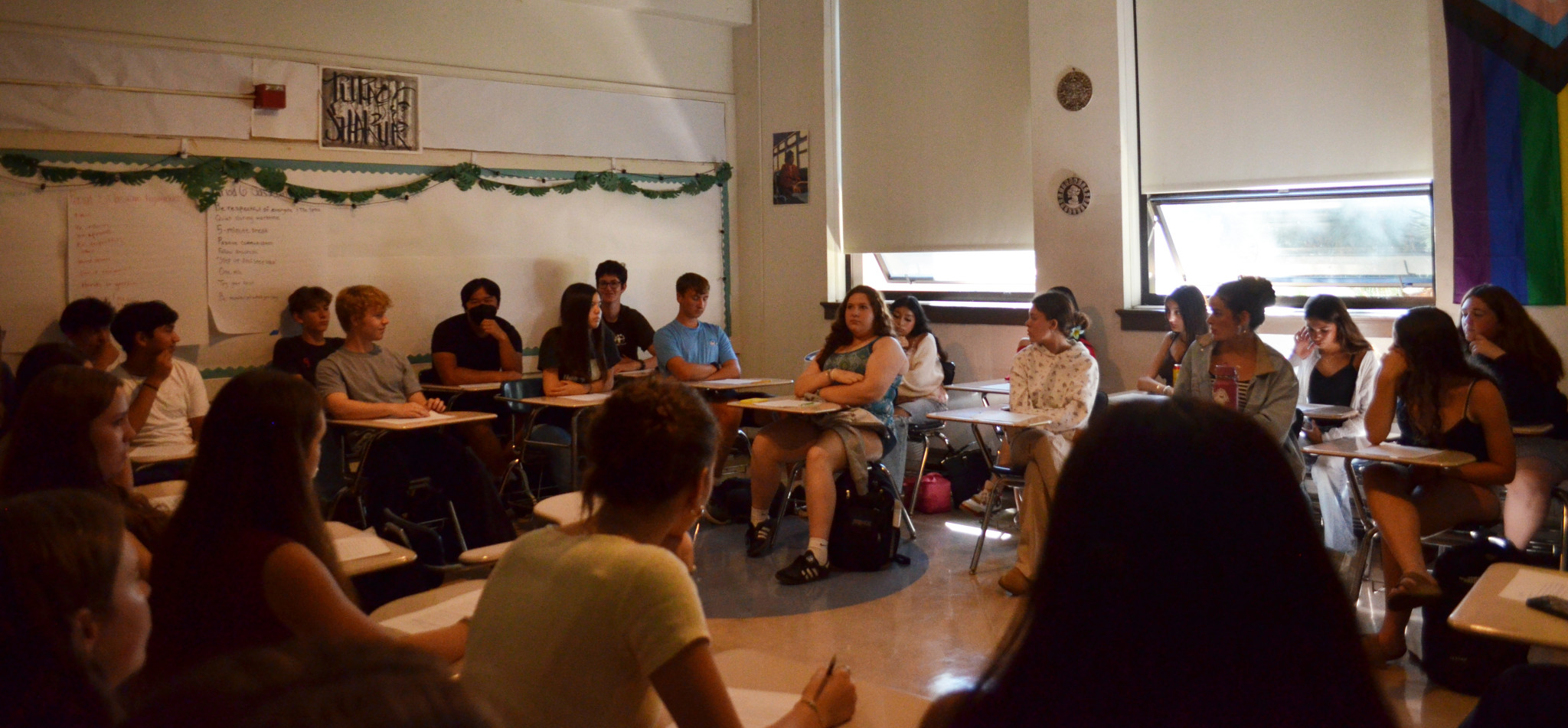Socratic seminars are something all high school students will encounter. They look different in 2025 than they did in 480 BCE, when they were created by Greek philosopher Socrates to encourage critical thinking and the sharing of knowledge through dialogue rather than lectures. Students at Berkeley High School have been noticing possible reforms to Socratic seminars that could increase their effectiveness.
“You have a quota you have to meet. You're thinking ... ‘how can I talk, even if I don't have something super helpful to add?’” BHS senior Talia Nishioka said. Nishioka recently participated in a Socratic seminar in her Theory of Knowledge class. Many classes utilize the Socratic method at BHS and they are often practiced as “fishbowls.” The fishbowl method consists of two concentric circles of students: one outer circle, which listens and takes notes, and an inner circle that converses about the given topic. Eventually, the circles switch and the process repeats.
Students are often graded on the number of times they speak rather than the content of their ideas. “The idea behind (speaking quotas) is … amazing, but I think that it creates an unproductive seminar when you have people who are just talking to talk,” BHS junior Delphine Wadlund said. To ensure all students contribute constructively, speaking quotas in these seminars should be removed and replaced with more in-depth research time beforehand. This will help students feel adequately prepared so that they may contribute more substantially.
Nishioka approves of an alternative Socratic method she's seen used in some classes. Students are divided into smaller Socratic groups while their teacher walks around, observing each in turn. “There was less of (the feeling that) everybody is listening to you, and more of an organic conversation,” Nishioka said. She wasn’t the only one that felt this way. “When (I) was (in) a smaller group, I felt like I was more comfortable,” BHS junior Rubi Silva said. By dividing students, teachers will ensure a comfortable learning environment that encourages speaking skills to flourish.
Size is not the only issue with Socratics at BHS. “Students (at BHS) tend to be (singleminded) when it comes to certain political or social topics,” Nishioka said. To many students, the homogeneity of Berkeley politics creates the “Berkeley Bubble," a term used to describe a perceived left-wing echo chamber, with alternative perspectives neither represented nor encouraged. During Socratic seminars, this echo chamber limits pushback and contradictions. For Socratic seminars to be productive, they must be judgement-free, confidential spaces.
Like all teaching methods, Socratic seminars do not suit all learning styles, but can be improved. By removing speaking quotas, decreasing group size, and facilitating an attentive and conscientious environment, students are sure to provide insightful contributions.





